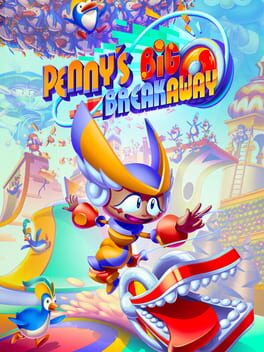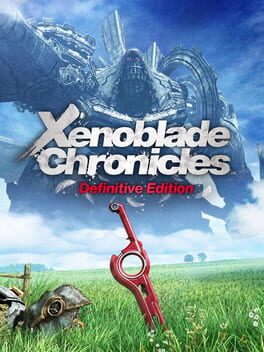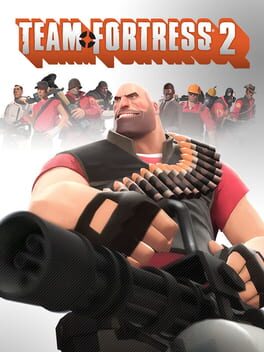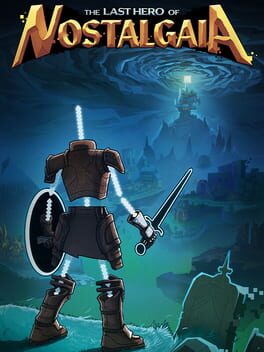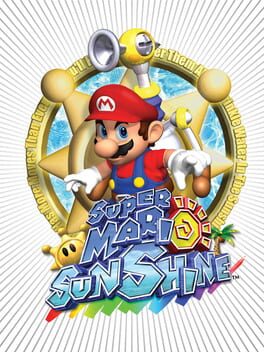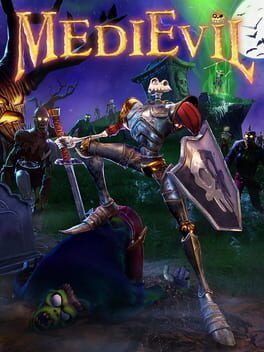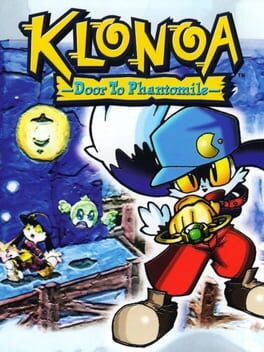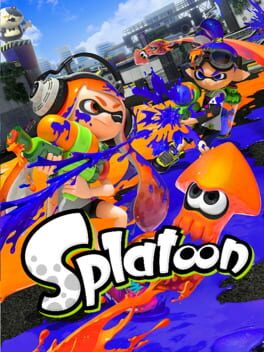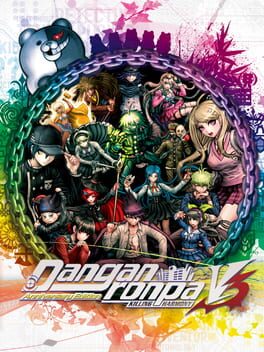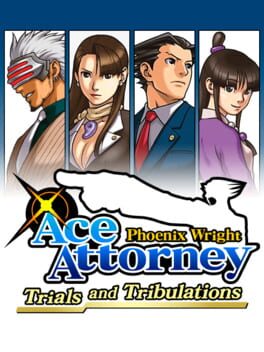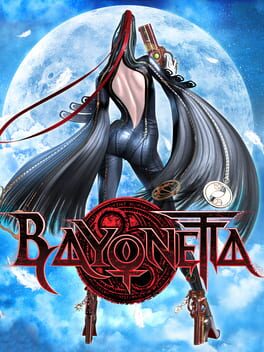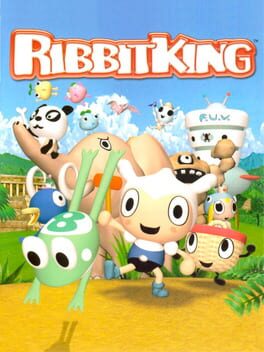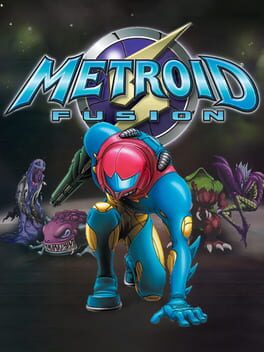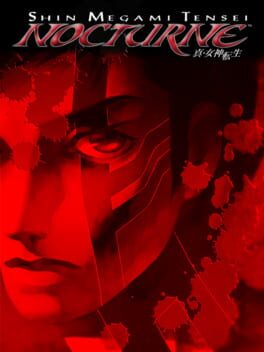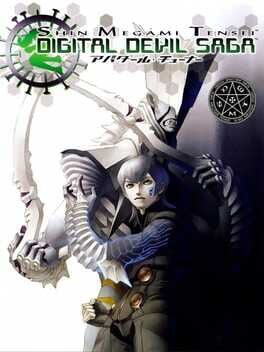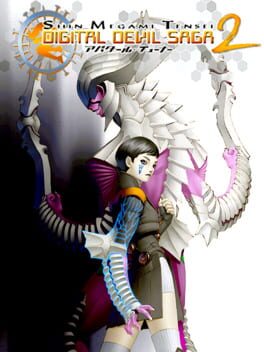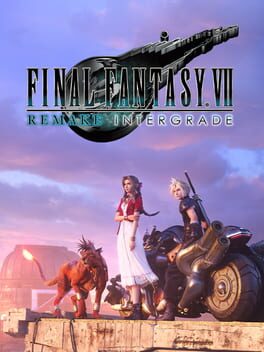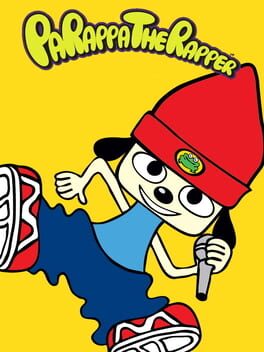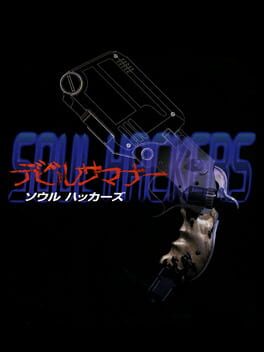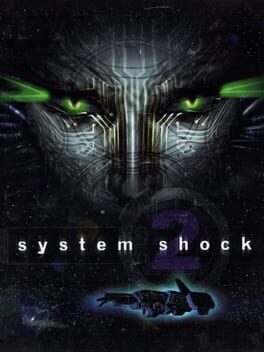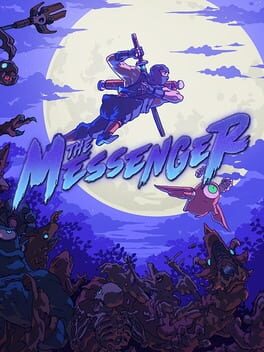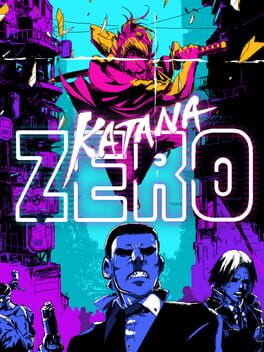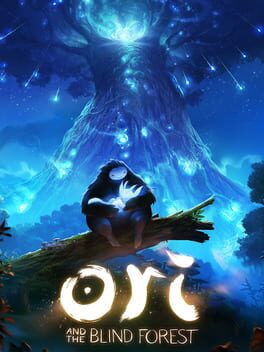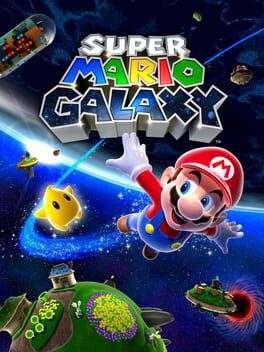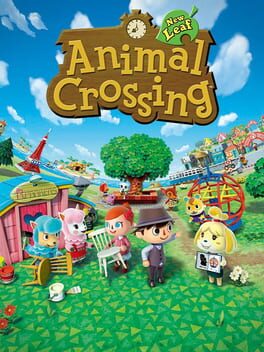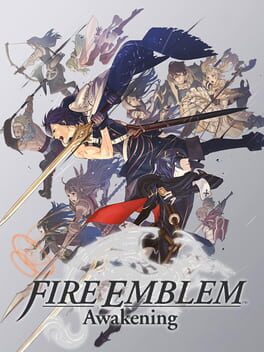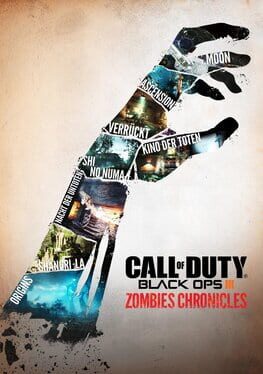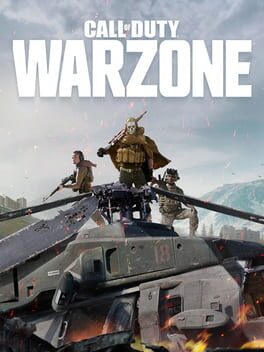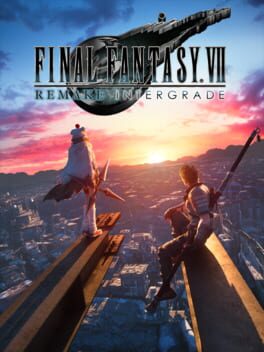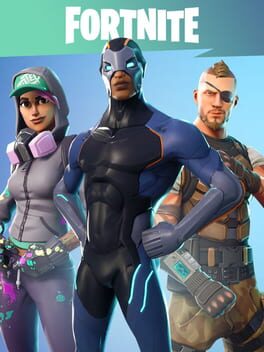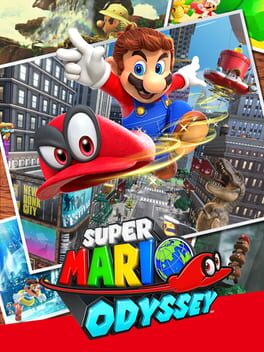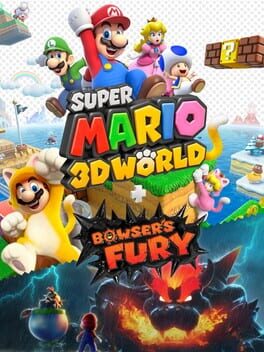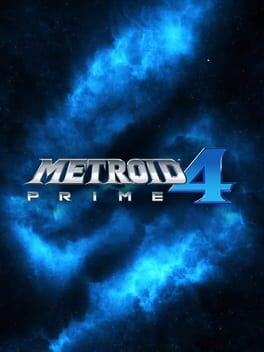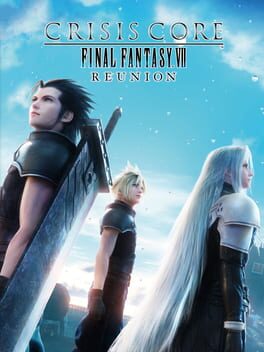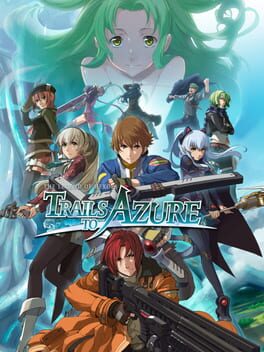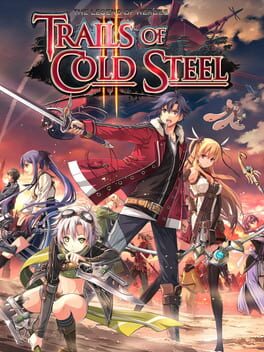giIsborough
344 reviews liked by giIsborough
Gotta say, I'm a bit surprised by all the mixed reviews I've been seeing. Penny's Big Breakaway has been my most anticipated game this year, so I had some pretty lofty expectations, especially considering who was working on it. Thankfully, I think it really lived up to them, and I've been having an absolute blast with the game.
The movement is very momentum-based, focused around using your yo-yo tricks in succession to gain and maintain your speed. It's got a bit of a difficulty curve to it. Like in a Sonic game, you're probably gonna screw up a lot in the first world or so, but with time, there's such a strong sense of flow to navigating through these stages. You have so much freedom of expression, to the point where there's rarely one way to make it past an obstacle. You can swing to carefully position your jump, dash to keep the speed up, land on your yo-yo to keep your combo going, or chain them all together and maybe even skip a few platforms. It's so good, and the level design feels meticulously crafted to encourage you to go fast.
But beyond the core gameplay, PBB is just so fun. The visuals are bright and colorful, and each world has such unique and fresh theming, like an Italian-style restaraunt set in a volcano or a library floating in an endless void in space. The animation for Penny is so lively and expressive, the NPCs are so charmingly written, and I shouldn't have to say that the soundtrack by Tee Lopes and Sean Bialo goes incredibly hard. Outside The Eidophusikon is already a solid candidate for best vgm track of the year.
PBB isn't without its jank, but as a fan of 3D platformers from the early 2000s, it scratches an itch I haven't been able to scratch since probably A Hat In Time? In a lot of ways, it feels like this game was made for me.
The movement is very momentum-based, focused around using your yo-yo tricks in succession to gain and maintain your speed. It's got a bit of a difficulty curve to it. Like in a Sonic game, you're probably gonna screw up a lot in the first world or so, but with time, there's such a strong sense of flow to navigating through these stages. You have so much freedom of expression, to the point where there's rarely one way to make it past an obstacle. You can swing to carefully position your jump, dash to keep the speed up, land on your yo-yo to keep your combo going, or chain them all together and maybe even skip a few platforms. It's so good, and the level design feels meticulously crafted to encourage you to go fast.
But beyond the core gameplay, PBB is just so fun. The visuals are bright and colorful, and each world has such unique and fresh theming, like an Italian-style restaraunt set in a volcano or a library floating in an endless void in space. The animation for Penny is so lively and expressive, the NPCs are so charmingly written, and I shouldn't have to say that the soundtrack by Tee Lopes and Sean Bialo goes incredibly hard. Outside The Eidophusikon is already a solid candidate for best vgm track of the year.
PBB isn't without its jank, but as a fan of 3D platformers from the early 2000s, it scratches an itch I haven't been able to scratch since probably A Hat In Time? In a lot of ways, it feels like this game was made for me.
Team Fortress 2
2007
Played for a half hour and the store tried to cram a bunch of cosmetic items down my face like its news and I played the most braindead tutorial in a while. I queue into a casual game and its all bots except for like 1 other person, one of the bots is clearly cheating on the enemy team so there's no point. Somebody tries to kick me for scamming but I can't even talk in the chat to defend myself, 'Voice Chat not activated on this account' or something but at least theres no players there to vote it through. As the game continues the bots dwindle away to just me and this one other person who seems especially bad at the game so I get a few kills on them. Round ends, bots refill in the lobby, one of them is also blasting a really loud Cocteau Twins song for some reason. This is what I have to play until I win at least 10 games and then maybe possibly competitive is better.
Look usually I don't write these sort of short off the cuff sarcastic reviews but somebody is going to look through and see I hated TF2 and wonder why, this is why. Why would I put up with any of this shit when TF2 Classic is right there? It's insane I'm sitting here and reading the high praise on this game from people I respect a lot (DoctorQuark, Bojangles, etc.) and just feel totally disconnected from it. I think Valve through pure disinterest basically lobotomized the game and left a husk for at least the new player experience. If anybody wants to play TF2 Classic hmu, if anybody wants to play TF2 get your eyeballs checked cause holy shit depressing doesnt even begin to convey the buzzard picked corpse I just had to experience. Genuinely distressing, but at least TF2 Classic functions as a nice time capsule.
Look usually I don't write these sort of short off the cuff sarcastic reviews but somebody is going to look through and see I hated TF2 and wonder why, this is why. Why would I put up with any of this shit when TF2 Classic is right there? It's insane I'm sitting here and reading the high praise on this game from people I respect a lot (DoctorQuark, Bojangles, etc.) and just feel totally disconnected from it. I think Valve through pure disinterest basically lobotomized the game and left a husk for at least the new player experience. If anybody wants to play TF2 Classic hmu, if anybody wants to play TF2 get your eyeballs checked cause holy shit depressing doesnt even begin to convey the buzzard picked corpse I just had to experience. Genuinely distressing, but at least TF2 Classic functions as a nice time capsule.
An homage to gaming and Dark Souls 1, The Last Hero of Nostalgaia is a souls-like set in the titular Kingdom of Nostalgaia, a rotten, decayed husk of its former glory brought to ruin by the hero’s of time past being unable to let new adventure-ers and stories take the reins and blaze their own paths.
One of the main draws of the game is the remembrance system, it adds in new gameplay importance to the classic souls storytelling convention of learning tidbits about the world through their item descriptions. This usually consists of finding a weapon/armor set based on another video game and going to an area of the overworld that also goes with it, granting a buff to its stats and a cool new awakened 3d form factor. The player also gets small stat buffs from this, and while being a nice addition I don’t think it’s major enough to matter too much if you’re stuck on something.
Speaking of getting stuck, I came along two major roadblocks during my playthrough. The acrobatic, Smough cosplaying moogle named Gnom is probably the hardest thing this game has to throw at the player. With really short windows to punish most of its swings along with longer than normal delay on its big attacks, it really felt like I was fighting something taken straight out of Elden Ring. While it is a bit of a design curveball from the rest of what the game has, looking back on it there’s a lot of fun to be had in learning its patterns and finding out how to get that big hit in.
Enemies are varied and run the standard souls gamut of creepy creatures, husk men, and monsters. They all feel like they would inhabit this world and actually dwell here and rot while I'm not around. The sheer number of enemies between each respite from combat can be a tad too much at some points and the amount of times you’ll get ganked can feel like ds2 at points, but at no point did the enemy placement feel straight up unfair. The other boss fights in this game really do give more of a normal dark souls vibe and I enjoyed each of them quite a bit.
On the other hand, the level design can be just a little too confusing sometimes and lead to confusion on where you need to go to progress. There were multiple times where the way forward is very easy to miss and led to me spending a bit too much time being lost. That’s not to say the level design is bad though. You can tell the team really put a lot of love and effort into making these areas and having them “feel like dark souls”. From the snowy hamlet beneath the castle, to the soft blue glow of the forest area, these areas look great and I appreciate the detail put into each one. They also did a great job of interlocking their areas together and the thought out placement of bonfires results in the game giving the feeling of having a couple mini hubs that everything kind of branches from. The lack of free fast travel is supposed to highlight this, but the long trips to and from each zone is still too long for most players probably. The alternative for this is that the player can tether themselves to one bonfire and teleport there from others but it's a one way warp and not useful enough to take away from backtracking tedium.
Even with the games’ faults, I couldn’t help but want to boot back in each time excited to see what fun reference or cool boss they had in store next. The Last Hero of Nostalgaia is a genuine and heartfelt love letter to the genre and an experience worth having.
and please remember to max your endowment for my sake. We need more boobs in this world.
One of the main draws of the game is the remembrance system, it adds in new gameplay importance to the classic souls storytelling convention of learning tidbits about the world through their item descriptions. This usually consists of finding a weapon/armor set based on another video game and going to an area of the overworld that also goes with it, granting a buff to its stats and a cool new awakened 3d form factor. The player also gets small stat buffs from this, and while being a nice addition I don’t think it’s major enough to matter too much if you’re stuck on something.
Speaking of getting stuck, I came along two major roadblocks during my playthrough. The acrobatic, Smough cosplaying moogle named Gnom is probably the hardest thing this game has to throw at the player. With really short windows to punish most of its swings along with longer than normal delay on its big attacks, it really felt like I was fighting something taken straight out of Elden Ring. While it is a bit of a design curveball from the rest of what the game has, looking back on it there’s a lot of fun to be had in learning its patterns and finding out how to get that big hit in.
Enemies are varied and run the standard souls gamut of creepy creatures, husk men, and monsters. They all feel like they would inhabit this world and actually dwell here and rot while I'm not around. The sheer number of enemies between each respite from combat can be a tad too much at some points and the amount of times you’ll get ganked can feel like ds2 at points, but at no point did the enemy placement feel straight up unfair. The other boss fights in this game really do give more of a normal dark souls vibe and I enjoyed each of them quite a bit.
On the other hand, the level design can be just a little too confusing sometimes and lead to confusion on where you need to go to progress. There were multiple times where the way forward is very easy to miss and led to me spending a bit too much time being lost. That’s not to say the level design is bad though. You can tell the team really put a lot of love and effort into making these areas and having them “feel like dark souls”. From the snowy hamlet beneath the castle, to the soft blue glow of the forest area, these areas look great and I appreciate the detail put into each one. They also did a great job of interlocking their areas together and the thought out placement of bonfires results in the game giving the feeling of having a couple mini hubs that everything kind of branches from. The lack of free fast travel is supposed to highlight this, but the long trips to and from each zone is still too long for most players probably. The alternative for this is that the player can tether themselves to one bonfire and teleport there from others but it's a one way warp and not useful enough to take away from backtracking tedium.
Even with the games’ faults, I couldn’t help but want to boot back in each time excited to see what fun reference or cool boss they had in store next. The Last Hero of Nostalgaia is a genuine and heartfelt love letter to the genre and an experience worth having.
and please remember to max your endowment for my sake. We need more boobs in this world.
Citizen Sleeper
2022
"At some point they cut away their own ability to see, to sense, to taste, to speak. And yet they kept cutting, until only those three threads remained, from millions that once thrummed here. Only their blindness, and chance, kept them from making those final three, fatal cuts."
'Citizen Sleeper' is a game of thorough design unity which, despite it's kinesthetically passive gameplay, uses often discomforting ludic principles to great effect in an effort to emulate and speak on a variety of socioeconomic discontents. It is a specific and enamoring game with a secure passion for it's values, making it possibly the best cyberpunk RPG since 'Deus Ex'.
The base mechanics of 'Citizen Sleeper' are the primary framing device which JumpOverTheAge use to get the player to connect and empathise with the character in control. Playing as a titular 'Sleeper'—a sort of humanoid machine with a consciousness placed in it—dice rolls for the skill checks of a given in-game day are dropped in a row at the offset of awakening. This dice check system is the central genius achievement of the game; the quantity and quality of dice is determined by the physical state of the Sleeper, if damage is taken or one exhausts themselves, suffering ensues in the form of not being able to preform a number of tasks in each day to rescue you from inevitable economic peril or progress in important quests, or perhaps not having the sufficient rolls to guarantee your safety in various tasks. The aforementioned hostile economy is, of course, an excellent supporting beam to a design structure principally about the interpersonal struggles of the capitalist workforce and where it intersects with our own physical bodies. This is a common cyberpunk motif, but it's the way that 'Citizen Sleeper' conjurers it ludologically that makes it so compelling and unheard of. I hope that the quote at the beginning of this review is a hint towards the fact that 'Citizen Sleeper' is a wonderfully written game, Gareth Damian Martin has quite a beautiful talent for waxing poetic about structuralism and the intersections between economics and our bodies in the game's dialogue, but—as is the case with other cRPGs revered for their writing such as the 'Fallout' of '97 or the 'Disco Elysium' of close temporal residing—I am hesitant to describe 'Citizen Sleeper' as 'novelistic' beyond the surface level view of the project from a distance, and to prescribe it this title is deeply misinformative. This is why I have focused so much from the outset on the mechanical framework, since they uphold the bulk of meaning for 'Sleeper.' As for them, the player is consistently placed in situations of nail-biting self sacrifice opposing self sufficiency, getting the opportunity to undertake a series of rather high strung days in the name of somebody else. I've played many games which apply a political litmus test later rather than sooner—the comedic ending of 'Vampire: The Masquerade - Bloodlines' anarcho-communist route comes to mind as very transparent example—but rarely have I come across a game which goes at it the other way around. The positive consequences for selflessness are distinctly not materialist in the first half of 'Citizen Sleeper' and are instead more understandably human ones. It takes an actual material sacrifice to do something connective, a sacrifice that might leave one queasy in a decidedly self-concerned way. You could babysit your coworker's young child, he needs that time to work himself, but that's time spent away from being able to work yourself and practice the onerous financial journey to acquiring basic necessities to live at all—the highly pressing health care challenge of getting medication specific to the livability of a Sleeper. The player interfacing with such systems provides two greatly true assertions regarding the puissant nature of material incentive under capitalism. The first is as it relates more gravely outside the sphere of aspiration and closer to ones needs as a marginalised individual now given a new arbitrary barrier from the connection and service of 'the other' because of not being adequately given the rights of living as successors, empathising with the cruelty of the proceedings as well as disavowing an immature notion that economics are subject only to affect within themselves and the exterior living conditions of an individual when in actuality there are some where it is the very fabric of their own bodies which are put at risk by the system. The second is those results of the self sacrifice as showing how it is still possible to have genuine human connection under capitalism, an optimism which is smartly attended with the underlying and necessary scrutiny that while such a connection is made slightly deeper in some ways by the need for certain self sacrifice that comes with the interaction's existence, the economic system demanding that selflessness does so with an act of passive prohibition which must be abolished for a true coming together absolved of needed self-injury—lily-white in bliss absconded from paper chains or numbers-in-mind and mutual completeness—to be achieved.
To warn of spoilers, this does not stay the same through the whole game. On the furthest, broken end of The Eye that the player may go sits a communal farm of mushrooms. Unlike every other task in the game there is zero material reward here tied to the greater capitalist 'economy', instead, here is the first and only place where your labour is linked directly to the well-being of yourself and others directly. It's not a trap, you simply work to get yourself food from the farm, plant more for others, and connect with people, like Riko, it's loose authority. This place is an almost compartmentalised structure of it's own, ripped away from the one which had lost it's "ability to see, to sense, to taste" and "to speak" which has been devouring you alive for almost the entire game. No longer forever, is the battle between the antagonistic economy and your tired body, here you could live as a person, truly a person, until you die. And, if you're anything like me, that is what you may well do. Because I failed the final test 'Citizen Sleeper' gave me. There is a possibly final moment with Riko, days past immersed in the warmth of a system that was truly human, truly communal, a collective. In this moment, you will enter the cross between of the consciousness and the digital and meet The Gardener. There's a serenading of promises, promises of real peace. A collective consciousness in true heaven. Death. Riko will beg in a whisper barely conceived among the blinding divinity of these proposals. It was not an innate desire for this bliss that made me leave Riko and everyone behind, I believe. More likely it was cowardice. An underlying fear that all the beauty I had seen there was destined to be wiped out by the horror which surrounded it. Our internalised cynicism which makes us unable to fathom a world living beyond the capitalist choke-hold around us now is just fear playing shit-bag, and it has made me look like a true fool.
'Citizen Sleeper' is a game of thorough design unity which, despite it's kinesthetically passive gameplay, uses often discomforting ludic principles to great effect in an effort to emulate and speak on a variety of socioeconomic discontents. It is a specific and enamoring game with a secure passion for it's values, making it possibly the best cyberpunk RPG since 'Deus Ex'.
The base mechanics of 'Citizen Sleeper' are the primary framing device which JumpOverTheAge use to get the player to connect and empathise with the character in control. Playing as a titular 'Sleeper'—a sort of humanoid machine with a consciousness placed in it—dice rolls for the skill checks of a given in-game day are dropped in a row at the offset of awakening. This dice check system is the central genius achievement of the game; the quantity and quality of dice is determined by the physical state of the Sleeper, if damage is taken or one exhausts themselves, suffering ensues in the form of not being able to preform a number of tasks in each day to rescue you from inevitable economic peril or progress in important quests, or perhaps not having the sufficient rolls to guarantee your safety in various tasks. The aforementioned hostile economy is, of course, an excellent supporting beam to a design structure principally about the interpersonal struggles of the capitalist workforce and where it intersects with our own physical bodies. This is a common cyberpunk motif, but it's the way that 'Citizen Sleeper' conjurers it ludologically that makes it so compelling and unheard of. I hope that the quote at the beginning of this review is a hint towards the fact that 'Citizen Sleeper' is a wonderfully written game, Gareth Damian Martin has quite a beautiful talent for waxing poetic about structuralism and the intersections between economics and our bodies in the game's dialogue, but—as is the case with other cRPGs revered for their writing such as the 'Fallout' of '97 or the 'Disco Elysium' of close temporal residing—I am hesitant to describe 'Citizen Sleeper' as 'novelistic' beyond the surface level view of the project from a distance, and to prescribe it this title is deeply misinformative. This is why I have focused so much from the outset on the mechanical framework, since they uphold the bulk of meaning for 'Sleeper.' As for them, the player is consistently placed in situations of nail-biting self sacrifice opposing self sufficiency, getting the opportunity to undertake a series of rather high strung days in the name of somebody else. I've played many games which apply a political litmus test later rather than sooner—the comedic ending of 'Vampire: The Masquerade - Bloodlines' anarcho-communist route comes to mind as very transparent example—but rarely have I come across a game which goes at it the other way around. The positive consequences for selflessness are distinctly not materialist in the first half of 'Citizen Sleeper' and are instead more understandably human ones. It takes an actual material sacrifice to do something connective, a sacrifice that might leave one queasy in a decidedly self-concerned way. You could babysit your coworker's young child, he needs that time to work himself, but that's time spent away from being able to work yourself and practice the onerous financial journey to acquiring basic necessities to live at all—the highly pressing health care challenge of getting medication specific to the livability of a Sleeper. The player interfacing with such systems provides two greatly true assertions regarding the puissant nature of material incentive under capitalism. The first is as it relates more gravely outside the sphere of aspiration and closer to ones needs as a marginalised individual now given a new arbitrary barrier from the connection and service of 'the other' because of not being adequately given the rights of living as successors, empathising with the cruelty of the proceedings as well as disavowing an immature notion that economics are subject only to affect within themselves and the exterior living conditions of an individual when in actuality there are some where it is the very fabric of their own bodies which are put at risk by the system. The second is those results of the self sacrifice as showing how it is still possible to have genuine human connection under capitalism, an optimism which is smartly attended with the underlying and necessary scrutiny that while such a connection is made slightly deeper in some ways by the need for certain self sacrifice that comes with the interaction's existence, the economic system demanding that selflessness does so with an act of passive prohibition which must be abolished for a true coming together absolved of needed self-injury—lily-white in bliss absconded from paper chains or numbers-in-mind and mutual completeness—to be achieved.
To warn of spoilers, this does not stay the same through the whole game. On the furthest, broken end of The Eye that the player may go sits a communal farm of mushrooms. Unlike every other task in the game there is zero material reward here tied to the greater capitalist 'economy', instead, here is the first and only place where your labour is linked directly to the well-being of yourself and others directly. It's not a trap, you simply work to get yourself food from the farm, plant more for others, and connect with people, like Riko, it's loose authority. This place is an almost compartmentalised structure of it's own, ripped away from the one which had lost it's "ability to see, to sense, to taste" and "to speak" which has been devouring you alive for almost the entire game. No longer forever, is the battle between the antagonistic economy and your tired body, here you could live as a person, truly a person, until you die. And, if you're anything like me, that is what you may well do. Because I failed the final test 'Citizen Sleeper' gave me. There is a possibly final moment with Riko, days past immersed in the warmth of a system that was truly human, truly communal, a collective. In this moment, you will enter the cross between of the consciousness and the digital and meet The Gardener. There's a serenading of promises, promises of real peace. A collective consciousness in true heaven. Death. Riko will beg in a whisper barely conceived among the blinding divinity of these proposals. It was not an innate desire for this bliss that made me leave Riko and everyone behind, I believe. More likely it was cowardice. An underlying fear that all the beauty I had seen there was destined to be wiped out by the horror which surrounded it. Our internalised cynicism which makes us unable to fathom a world living beyond the capitalist choke-hold around us now is just fear playing shit-bag, and it has made me look like a true fool.
Super Mario Sunshine
2002
MediEvil
2019
Splatoon
2015
Splatoon or as I like to call it "Splatoon but with the best controller ever" was Nintendo EAD's first major original IP since Steel Diver in 2011 and Big Brain Academy in 2005, crazy. For a new franchise on a failing console, it was a smash hit selling a bit less than 5 million copies worldwide with Mario Kart 8, being the best-selling title for the Wii U at 8,46 Million for comparison, so yeah compared to Steel Diver, Splatoon was a real smash hit as Nintendo's first online focus shooter.
But numbers don't mean much if the game isn't good, so was this game actually good? I personally got this game on day 1 for Wii U as a gift, I was only 12 at the time and I really, really liked this game, especially for its single-player.
8 years later I finally gave it a new full walkthrough of both the single-player mode and played a ton of online matches to end up going from level 1 to 15 in less than 3 days, so yeah I had fun.
My favorite part about Splatoon 1 is the aesthetic, the soundtrack, the sound design, and the character design, everything in this game was perfectly created with love and originality, I think the most underrated part of this game is the soundtrack from the story mode, most people just say "Oh I love the Splatoon soundtrack" and it's just those weird squid noise songs that are honestly the worst part of the soundtrack, the whole story mode soundtrack feels like Splatoon, it's the most Splatoon that Splatoon ever was, it feels like this out worldly electro-pop madness that you wouldn't find anywhere else, I may be rambling nonsense about Splatoon 1 but I used to love this game and I still do.
Here's a list of really good Splatoon 1 tracks to enjoy forever and ever, even past the deadline of the servers:
- Gusher Gauntlet
- Quick Start
- Eight-Legged
- Friend List
- I Am Octavio (Phase 3)
- Great Octoweapons (Phase 3)
And obviously, the iconic Splattack that played on every Splatoon 1 ad on TV.
Now that's enough about the music, good music in a game makes you want to play more for sure, but good gameplay is what makes you want to play even more! And I'm proud to announce that Splatoon 1 gameplay is solid as hell, well yeah, it spawned 2 sequels so you kinda saw that coming didn't you... Still one more than Steel Diver though, but the same amount as Big Brain Academy, says a lot about society...
About the single-player, it's honestly really straightforward, kill enemies in a cover shooter TPS game but instead of the usual dogshit TPS cover shooter gameplay we get a unique take on the idea with paint and everything, y'all know-how Splatoon works so I'll skip that part, but overall a really short but pleasant experience, I honestly wish the game would've gotten some free update with new campaigns to beat or even DLCs like how 2 did but it was the Wii U days Nintendo still thought that paid online and DLCs were only made by the devil himself.
Now, the main meat of the game is the online part and I think that Splatoon has one of the most ingenious online scoring systems ever, it's impossible to not participate in the team effort because the goal is to paint the floor and even if you are a dumb player like me when I was a kid and thought at first "'the goal is to kill people" you still participate by painting the floor, accidentally or not, so if someone want to play this game as a deathmatch they totally can! It's so simple yet I don't think many people thought about how clever it was.
But here comes my main grips with the game, the lack of content. Yep, this game has 91 weapons but only 16 stages... I get that people love new weapons in a shooter but I'm gonna be honest, they all kinda just feel like variations of each other and I kinda just rock the same weapon that I fuck with, so yeah the game is kinda lacking if you don't care about playing with a bunch of different weapons, the main classic gameplay honestly never gets old to me but playing in the game maps over and over with a slow map rotation that only let us play in 2 maps at a time like why!!! I'm no expert in online shooter but what's the point of map rotation, just put any maps available at any moment so that we get fewer chances to get ones we've already played a hundred times on...
So yeah, that's a long review for a game that will die in about 4 months by the time of this review, and it really hurts me.
I've personally never touched any of the sequels because they honestly feel like how Mario Maker 2 is, a necessary port rather than a true sequel, something that you need on the Switch but not something that Nintendo will make by heart. Splatoon 1 was an event, a whole new big-budget franchise, Mario Maker 1 was an event, it has personality and charm and tried to be this big community Mario event for everyone with a Wii U while 2 was just cheaply put together so that they could let the Wii U rot in peace, but that's a discussion for another time, I'll most likely give Splatoon 2 a chance, and even 3, but I'm gonna miss this big hunking pile of junk called the Wii U gamepad, the soul of Splatoon 1.
But numbers don't mean much if the game isn't good, so was this game actually good? I personally got this game on day 1 for Wii U as a gift, I was only 12 at the time and I really, really liked this game, especially for its single-player.
8 years later I finally gave it a new full walkthrough of both the single-player mode and played a ton of online matches to end up going from level 1 to 15 in less than 3 days, so yeah I had fun.
My favorite part about Splatoon 1 is the aesthetic, the soundtrack, the sound design, and the character design, everything in this game was perfectly created with love and originality, I think the most underrated part of this game is the soundtrack from the story mode, most people just say "Oh I love the Splatoon soundtrack" and it's just those weird squid noise songs that are honestly the worst part of the soundtrack, the whole story mode soundtrack feels like Splatoon, it's the most Splatoon that Splatoon ever was, it feels like this out worldly electro-pop madness that you wouldn't find anywhere else, I may be rambling nonsense about Splatoon 1 but I used to love this game and I still do.
Here's a list of really good Splatoon 1 tracks to enjoy forever and ever, even past the deadline of the servers:
- Gusher Gauntlet
- Quick Start
- Eight-Legged
- Friend List
- I Am Octavio (Phase 3)
- Great Octoweapons (Phase 3)
And obviously, the iconic Splattack that played on every Splatoon 1 ad on TV.
Now that's enough about the music, good music in a game makes you want to play more for sure, but good gameplay is what makes you want to play even more! And I'm proud to announce that Splatoon 1 gameplay is solid as hell, well yeah, it spawned 2 sequels so you kinda saw that coming didn't you... Still one more than Steel Diver though, but the same amount as Big Brain Academy, says a lot about society...
About the single-player, it's honestly really straightforward, kill enemies in a cover shooter TPS game but instead of the usual dogshit TPS cover shooter gameplay we get a unique take on the idea with paint and everything, y'all know-how Splatoon works so I'll skip that part, but overall a really short but pleasant experience, I honestly wish the game would've gotten some free update with new campaigns to beat or even DLCs like how 2 did but it was the Wii U days Nintendo still thought that paid online and DLCs were only made by the devil himself.
Now, the main meat of the game is the online part and I think that Splatoon has one of the most ingenious online scoring systems ever, it's impossible to not participate in the team effort because the goal is to paint the floor and even if you are a dumb player like me when I was a kid and thought at first "'the goal is to kill people" you still participate by painting the floor, accidentally or not, so if someone want to play this game as a deathmatch they totally can! It's so simple yet I don't think many people thought about how clever it was.
But here comes my main grips with the game, the lack of content. Yep, this game has 91 weapons but only 16 stages... I get that people love new weapons in a shooter but I'm gonna be honest, they all kinda just feel like variations of each other and I kinda just rock the same weapon that I fuck with, so yeah the game is kinda lacking if you don't care about playing with a bunch of different weapons, the main classic gameplay honestly never gets old to me but playing in the game maps over and over with a slow map rotation that only let us play in 2 maps at a time like why!!! I'm no expert in online shooter but what's the point of map rotation, just put any maps available at any moment so that we get fewer chances to get ones we've already played a hundred times on...
So yeah, that's a long review for a game that will die in about 4 months by the time of this review, and it really hurts me.
I've personally never touched any of the sequels because they honestly feel like how Mario Maker 2 is, a necessary port rather than a true sequel, something that you need on the Switch but not something that Nintendo will make by heart. Splatoon 1 was an event, a whole new big-budget franchise, Mario Maker 1 was an event, it has personality and charm and tried to be this big community Mario event for everyone with a Wii U while 2 was just cheaply put together so that they could let the Wii U rot in peace, but that's a discussion for another time, I'll most likely give Splatoon 2 a chance, and even 3, but I'm gonna miss this big hunking pile of junk called the Wii U gamepad, the soul of Splatoon 1.
14 lists liked by giIsborough
by chandelierius |
65 Games
by ExAndOh |
28 Games
by Missjon |
56 Games
by Br0dee |
10 Games
by AUG |
8 Games
by Br0dee |
5 Games
by AUG |
7 Games
by dertdobber |
34 Games
